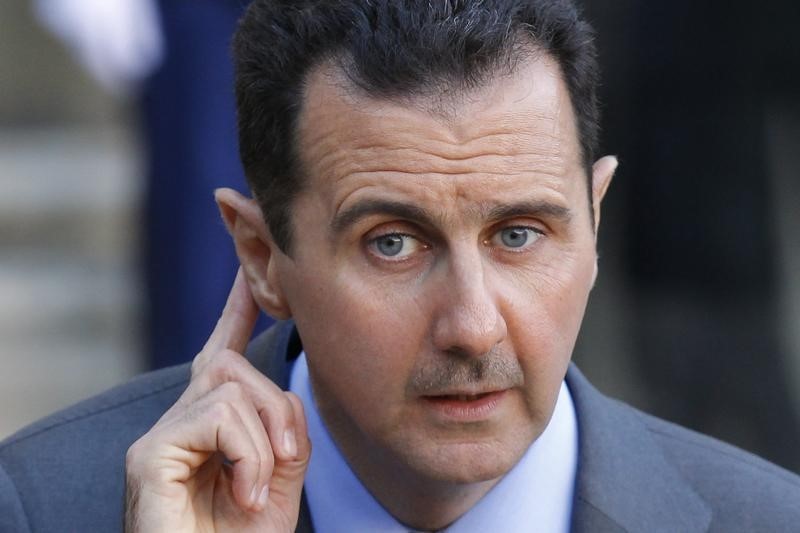BEIRUT (Reuters) - Syrian President Bashar al-Assad said he was open to the idea of a coalition against Islamic State but indicated there was little chance of it happening with his enemies, casting further doubt on a Russian plan to forge an alliance against the militant group.
The initiative proposed by Russia, a vital ally of Assad, would involve the Syrian government joining regional states that have backed Syrian rebels in a shared fight against the Islamic State group that controls wide areas of Syria and Iraq.
In an interview broadcast on Tuesday, Assad said the Syrian government would not reject such an alliance, though it made no sense "that states which stood with terrorism would be the states that will fight terrorism".
He was referring to governments including Turkey and Saudi Arabia that have backed insurgent groups fighting to topple him in the brutal four-year-long civil war that has killed an estimated 250,000 people and shattered the country.
"A small possibility remains that these states decided to repent, or realised they were moving in the wrong direction, or maybe for reasons of pure self-interest, they got worried that this terrorism is heading towards their countries, and so they decided to combat terrorism," Assad said.
"We have no objection. The important thing is to be able to form an alliance to fight terrorism," he said in the interview with al-Manar TV, which is controlled by Lebanon's Hezbollah.
The comments echo previous remarks by the Syrian foreign minister, who has said such an alliance would need "a miracle".
Saudi Arabia has ruled out any coalition with Assad. Like the United States, Saudi Arabia wants to see Assad gone from power, blames him for the rise of Islamic State, and says he cannot be a partner in the fight against the group.
The United States is leading an alliance in a campaign against the ultra-hardline group in both Syria and Iraq. Russia has said the United States should cooperate with Assad to fight Islamic State.
Support from Russia, Iran, and the Iranian-backed Hezbollah has been vital to Assad during the conflict.
The conclusion of Iran's nuclear deal with world powers including the United States has been followed by a spate of high-level diplomatic contacts aimed at trying to advance solutions to the Syrian war.
Previous diplomacy on Syria has been a complete failure.
Diplomats say Iran and Russia are the prime movers behind the latest push.
The contacts included a meeting between the Syrian and Omani foreign ministers this month. Oman has quietly brokered resolutions to several disputes in the Middle East.
Assad said it was obvious Oman had a role to play in helping to resolve the Syrian crisis.
"The meetings now aim to gauge the Syrian view on finding a solution and at the same time they (Oman) are gauging the regional and international climate ... to reach something specific," he said.

He added: "It is too early to talk about the role that Oman can play. We must wait for the continuation of this dialogue."